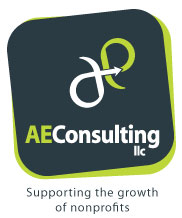Consultants are a dime a dozen. However, when you establish a functional relationship with a great consultant, you’ve struck gold! By definition a “consultant” is one who gives professional or technical advice, or, one who consults another. Sounds generic right? This works to your benefit. You can source a consultant, or a group of them, for any organizational need. There are multiple advantages when hiring a consultant. They can have flexible work schedules, broad networks, and integral knowledge of the local community. Consultants also pay their own business taxes and insurance fees and can offer an outside opinion without the bias or lack of experience that has been presenting an obstacle to your organization.
To maximize the time and money spent between your organization and the consultant, it’s important to consider a few key elements prior to signing any contracts. Here’s a brief snapshot of what I recommend taking into consideration on your side and from the consultant side as well as tips to getting started on the right foot:
When considering hiring a consultant, know the answers to the following questions:
· What specific area(s) of your organization have the greatest weaknesses? Strengths?
· What is your budget for hiring outside services?
· What outcomes are you expecting?
· Have you discussed this idea with your Board? (Suggested reading from The Nonprofit Consultant Blog, Continuous Improvement for Nonprofits)
Keep in mind the challenges from the consultant side:
· Not working in-house, or daily, with an organization can present drawbacks.
· Short-term projects have a higher risk of returning lower results (dependent upon project).
Tips to building a solid relationship from the beginning:
· Make sure you have a feasible communication system established. Are you a phone or email person? Should meetings be held weekly, monthly, or face-to-face?
· Outline a schedule for progress reports and establish openness around feedback, both negative and positive.
· Establish project milestones and timelines and put it all in writing.
· Should a project go well, consider keeping the consultant in the loop on your organization’s progress either via emails, lunch meetings, or even board meetings. This will keep them connected and will allow for less ramp up time down the road once a new project arises.
Consultants can seem expensive and sometimes they can be, which is why it is important to establish a solid plan of action and clear communication in order to allow the project an opportunity to succeed! Consultants are typically worth what you pay them, but there is responsibility on both sides. If done correctly, working with a consultant on certain projects can prove to add tremendous value. To ensure your dollars are well spent, take the above points into consideration and feel free to add to the discussion below.
More on "How to hire a freelance grant writer" here!





No comments:
Post a Comment
Note: Only a member of this blog may post a comment.